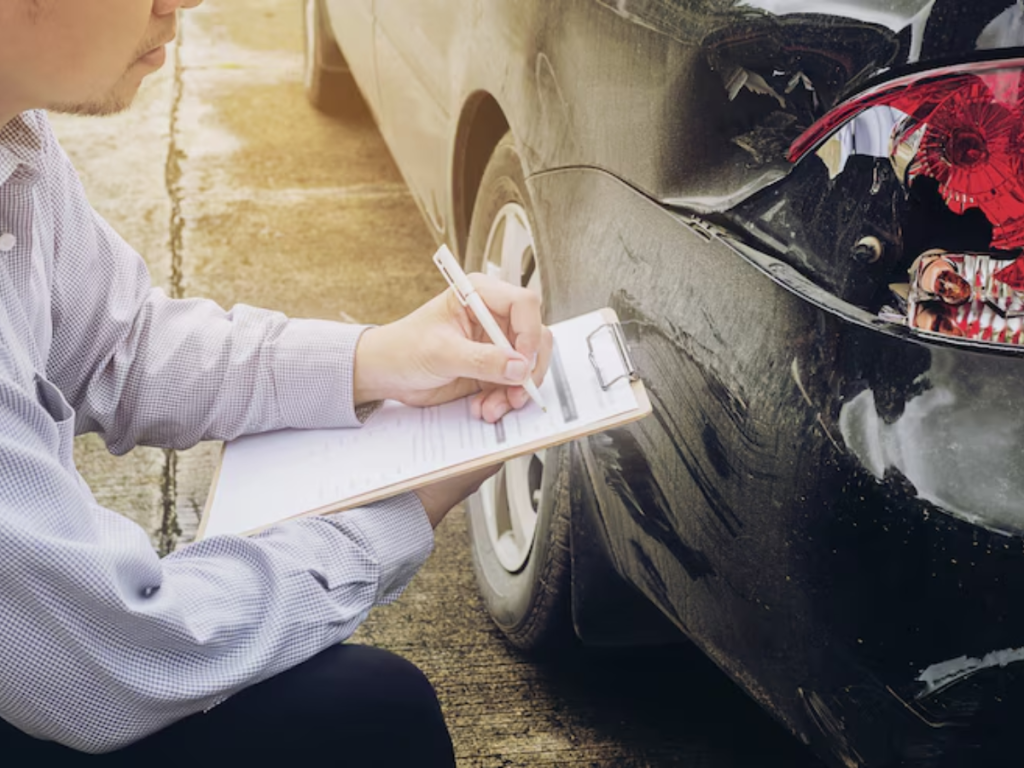Introduction
Making an auto insurance claim is something that every car owner will be required to do at some time during their lifetime. Either it is a minor crash or a huge collision, handling insurance firms can be a nightmare if you do not know what you are doing. Most people commit errors throughout the claims process that lead to delayed payments, lowered compensation, or outright denial of the claim. Knowing the pitfalls and how to go through the process with focus and confidence can save you time, funds, and stress.
This step-by-step guide offers valuable tips on how to avoid common blunders when making an auto insurance claim. By doing this, you can facilitate the smooth processing of your claim and ensure that you are treated fairly by your insurer.
The Significance of Being Aware of the Correct Process
When you purchase auto insurance, you are, in effect, buying cover against unforeseen loss and damage. But mere possession of a policy is not enough to ensure hassle-free claims settlement. Familiarity with the claim process is necessary to ensure that you do everything required of a policyholder. A minor mistake or omission can jeopardize your ability to get full compensation. Hence, knowing what to do and what not to do in case of an accident is the key to a successful claim.
Always Report the Accident Immediately
One of the most frequent errors individuals commit is not informing their insurance company as soon as they have an accident. Most policies contain provisions that necessitate you to report accidents within a stipulated time. Delaying notification to your insurer can cause problems when evaluating claims.
Even when the accident appears minor or you believe the damage is not critical, reporting it is recommended. In some instances, signs of injuries or mechanical problems of your vehicle might not be experienced immediately. Early reporting enables the insurance firm to examine the case before the evidence fades away and helps maintain your rights.
Collect Full Evidence at the Accident Scene
Leaving the accident site without collecting necessary evidence can significantly weaken your claim. When filing a claim, your version of events must be backed up with proof. Having visual and factual documentation helps the insurance adjuster determine what happened and who was at fault.
You should photograph the involved vehicles clearly, the resulting damage, the road conditions, and any apparent injuries. Get the contact details of all parties and witnesses. Ask for a copy of the police report or at least record the name and badge number of the officer if there is one. Such detailed documentation makes your claim more credible and stronger.
Do Not Admit Fault at the Scene
After an accident, it is only normal that you feel nervous, emotional, or shocked. You may feel like apologizing or taking fault even if you were not the sole cause of the accident. Uttering a phrase such as it was my fault or I did not see you can be seen as admitting liability.
Even if you suspect that you may have contributed to the accident, it is always best to let the authorities and the insurance examiners decide on who was negligent. Refrain from making judgment calls and keep to reporting only the facts. Insurance firms extensively depend on the police reports, witness accounts, and physical damages to establish blame.
Get Medical Attention Immediately
Most people prefer not to seek medical attention following an accident if they do not hurt immediately. Yet some injuries like soft tissue damage or internal injury might not be symptomatic instantly. Delaying too long in seeking medical help can put your health at risk and compromise your insurance claim.
Insurance firms can dispute that your injuries resulted from the accident and not otherwise if you wait too long to seek treatment. For this reason, it is extremely important to consult a doctor as quickly as possible, adhere to their recommendations, and keep careful records of visits, treatments, prescriptions, and costs.
Know What Your Policy Includes
Failure to understand your insurance policy is another frequent cause of claims being denied or resulting in unforeseen expenses. Take a close look at your insurance documents before making a claim. You should know what collision coverage, liability coverage, comprehensive coverage, and uninsured motorist coverage are.
Knowledge of your policy limits and exclusions is the best way to make informed expectations. As a hypothetical example, if you only have liability insurance, there is a chance damage to your vehicle might not be paid out. If your policy contains a deductible, make sure you understand how much you pay first before the insurance covers anything. Being knowledgeable about your policy may spare you future headaches when making claims.
Be Truthful and Reliable in Your Claim
Presents only partial or misleading information during the claims process is among the quickest methods to have your claim rejected. Some people do so inadvertently by overstating facts or omitting essential facts, and others intentionally overstate damage or injury in an attempt to raise compensation.
Be always truthful and candid in your assertions. If you do not recall something or are doubtful about a detail, it is preferable to state so than to hazard a guess. Put all pertinent documents like medical reports, receipts, repair estimates, and photographs. Clarity and accuracy in your testimony will gain your insurer’s confidence and help make the claims process easier.
Do Not Accept a Quick Settlement Without Evaluation
Insurance firms tend to settle claims early in order to limit their exposure. Although the immediate payment might be convenient, accepting early settlement can be a mistake if you have not yet evaluated the full scope of your injuries or damages.
Prior to finalizing any settlement, ensure you have finished all of your medical exams and acquired all of the repairs to your vehicle that you need. You may want a second estimate for repairs or talk to a legal representative if the case is complicated. If you settle on a settlement, you usually cannot re-open the claim afterward, even if new damages occur.
Keep a Record of All Correspondence
Throughout the process of filing a claim, you will have dealings with several different parties including your agent, adjusters, repair experts, medical providers, and perhaps the legal representatives of the other party. It is essential to keep very thorough records of communications.
Keep a record of the date, time, and type of each conversation or meeting. Store copies of letters, emails, invoices, and reports. Being well-prepared with a neat file will enable you to answer questions promptly, settle disputes speedily, and establish your case if things go wrong later.
Keep an Eye on the Progress of Your Claim
Making a claim doesn’t equate to the end of your work. Some people commit the error of believing that the insurance company will do all the work from there onwards. Miscommunication and delays in processing the claim are not rare.
It is up to you to follow up regularly and ensure the claim is moving forward. Stay in contact with your adjuster, request updates, and be prepared to offer any additional information required. Being polite but persistent in communication demonstrates that you are active and serious about your claim.
Know When to Seek Legal Help
In simple cases with minor car damage, you might not require an attorney. But in more complicated cases with serious injury, large financial losses, or contentious liability, expert legal advice can be well worth it.
An experienced lawyer can assist you in understanding your rights, negotiating settlement offers, negotiating with the insurer, and advocating your interests in court if needed. Legal assistance can also assist in uncovering benefits you might be entitled to that are not immediately apparent and help you avoid being taken advantage of during the claims process.
Do Not Make Public Statements Regarding the Accident
With the rise of social media, numerous individuals post updates on the internet without considering the effects. Reporting about your accident, injuries, or interactions with the insurance firm on public sites may damage your claim.
Insurance investigators sometimes review public profiles to look for inconsistencies. A casual post saying you feel fine or a photo showing physical activity could be used to challenge your injury claim. It is best to avoid discussing the accident publicly and keep communication limited to official channels.
Prepare for the Claims Process Before an Accident Happens
Preparation is one of the most effective strategies for avoiding errors during an insurance claim. Have a copy of your insurance policy and registration on hand in your car. Carry emergency equipment such as a pen, note pad, flashlight, and phone charger in your vehicle. Familiarize yourself with your insurance company’s claims process prior to an accident so that you are not surprised.
Make a checklist of the procedures to undertake in case of an accident like inspecting for injuries, dialing emergency numbers, recording the scene, and calling your insurer. Preparation enables you to respond promptly and appropriately under stress.
Final Thoughts
Making an auto insurance claim is not just a routine procedure but a critical financial process that needs attention to detail and awareness of your rights. Most usual errors can be prevented by having the right information and preparation. Acting quickly, gathering accurate information, and communicating effectively can help you avoid delays and ensure a fair settlement of your claim.
Keep in mind that each action you take following an accident affects the result of your claim. Having knowledge of your policy, keeping things organized, and honesty are fundamental principles that will work well for you. If the issue becomes complex or involves major losses, don’t be afraid to seek the assistance of a professional who can lead you.
Being proactive, well-informed, and prudent during the claims process can pay big dividends in the support your insurance company will provide you. Ultimately, the objective is not merely to make a claim but to look out for your interests and gain the compensation to which you are entitled under your policy.

